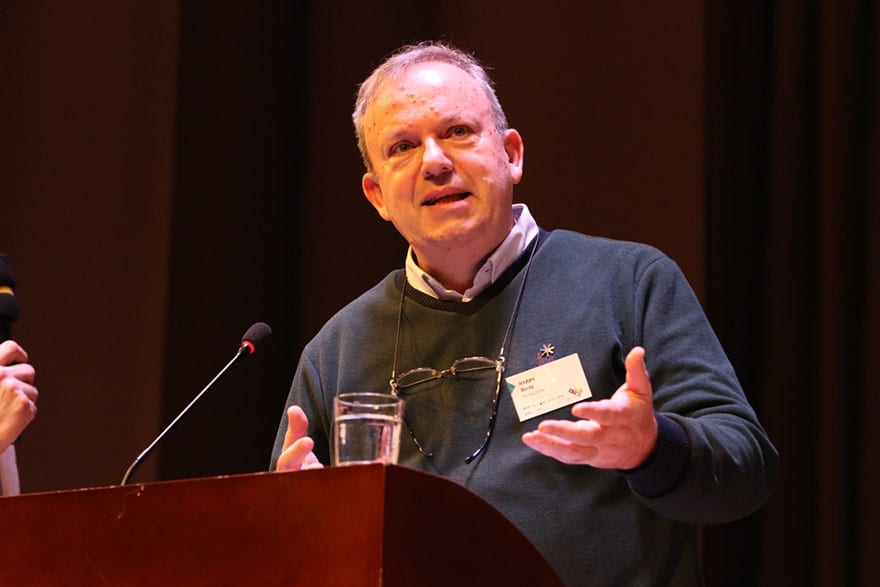I sincerely believe in the idea that people are the key factor in the development of society, incomparably more important than highways, luxury shopping centres or the strength of military units.
The ability of a society to form, recognise and intelligently position the most capable individuals is a greater guarantee of rapid and successful development than the number of laws enacted, the frequency of smiling senior visiting politicians or the amount of foreign capital invested. Capable and dedicated individuals will easily create and attract lacking capital, establish an effective health system, attract high-quality capital, and resolve identified weaknesses and shortcomings. Without such individuals and without the high-quality production of new generations of such people, no country can achieve stable development and a high-quality international position.
Since the Middle Ages, and in some places since even earlier, all more or less orderly and stable societies have tasked schools and universities with creating such individuals – and that is in no way done by the army, police, church, or the media. Simply put, the basic goal of a dedicated education system in any community is to help every child to develop and manifest their best abilities and to acquire the knowledge and skills required to live successfully and happily in a real environment and to create for their own benefit and that of the entire community. In successful and developed societies, the education system is an important segment of wise and far-sighted policies, as well as being a strategic investment designed with a reach measured in terms of decades.
It is true that few people in Serbia are satisfied with the quality of the education system. Various attempts at reforming, revising and reorganising it have been very common during the past four decades at least. Let’s be honest – it would be tough for anyone to find a country anywhere in the world where citizens and professionals are satisfied with the education system. Everyone would change and improve their system, which is a logical consequence of the rapid changes occurring in technology, economics and social relations.
And, despite various objections, Serbia has been assessed for many years as having a very good education, the key argument for which being the results of individual competitors in mathematics or physics, as well as the successes of individual athletes or musicians.
The results of our students in serious international tests of abilities, such as the PISA test, for example, show remarkably poor results, especially in the area of cognitive abilities
Nevertheless, the results of our students in serious international tests of abilities, such as the PISA test, for example, show remarkably poor results, especially in the area of cognitive abilities. Connecting information and drawing conclusions are not things that are learned in school, but rather are developed on the basis of innate intellectual abilities. School, of course, can help to encourage, apply and practise these skills. If we start with the assumption that these innate abilities are distributed more or less equally worldwide, i.e. that approximately the same percentage of very bright and curious children are born in our country as elsewhere in the world, how is it that by the age of 15 (when PISA testing is conducted) the percentage of our pupils who can successfully solve complex issues of the highest level of complexity lags behind by as much as ten per cent (!) compared to peers from developed regions of China or Finland, Korea etc.?
Are dumb and disinterested children born in Serbia? Certainly not! How, then, do we manage to demotivate them so much or teach them not to think with their own minds?
This directs us towards the role and function played by the school in the development of children’s cognitive abilities. Something in the schools we have today does not work well and causes huge damage. To the best of my knowledge, no serious research has been conducted in our country that would identify this problem and offer something that could be done to improve the situation. Still, no specific research is required for us to acknowledge that our schools are impoverished, poorly equipped, dysfunctional for citizens; that teachers are poorly paid and equally poorly motivated, that our curricula are obsolete, uninspiring and definitely not at all motivating for children who think, who are full of dreams and ideas.
However, school isn’t solely to blame. Much that is negative sometimes happens with the best of intentions, within the family, where we transfer our frustrations and wrath to our children. Beyond the family, children grow up surrounded by messages and values transmitted by the mass media. All the misfortunes of poverty are reduced onto children, discouraging them from thinking freely, imagining and dreaming. Even children of rich and privileged classes, who grow up in a world of fake fairy tales and fulfilled desires, attending expensive private schools, form in an equally unhappy way that kills dreams. They won’t become the creative leaders and successful designers of the future either, but rather petty snobs overly dependent on their parents and unable to communicate with their real environment and their peers from different fairy tales.
In the end, changes will still be brought to this world by the children.
